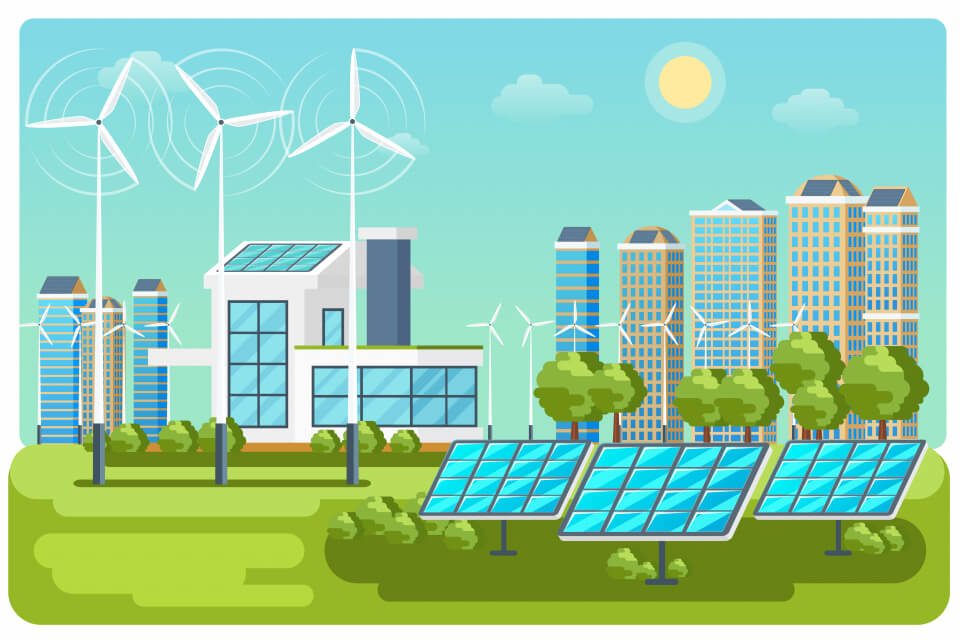Climate change and environmental degradation are an existential threat to Europe and the world. To overcome these challenges, Europe needs a new growth strategy that will transform the Union into a modern, resource-efficient and competitive economy. The EU aims to be climate neutral in 2050. We proposed a European Climate Law to turn this political commitment into a legal obligation. The proposal respects the fundamental rights and observes the principles recognised in particular by the Charter of Fundamental Rights of the European Union. In particular, it contributes to the objective of a high level of environmental protection in accordance with the principle of sustainable development as laid down in Article 37 of the Charter of Fundamental Rights of the European Union.
To mark the 2021 EU Green Week, the European Association of Service Providers for Persons with Disabilities (EASPD) has published a report, ‘The European Green Deal and Social Services’ which addresses the opportunities, needs and barriers for social service providers in in the move towards a Greener sector. The report highlights that social services can improve their environmental impact whilst increasing their social impact. It goes on to suggest that the European Green Deal and EU funding programmes have the potential to empower social services to maximise the potential of green strategies for the provision of high-quality community-based services, which meet the needs of persons with disabilities.
Climate change, and its side effects, pose a real and ever-increasing threat to communities around the world. Persons with disabilities are arguably more vulnerable to experiencing the negative repercussions of climate change such as extreme weather episodes, pollution as well as changes to transportation or energy consumption, impacting on their health and ability to fully participate in their communities. In turn, the social services sector, and persons with disabilities also impact climate change.
Social care and support providers also play a key role in the transition towards more inclusive, sustainable societies however, both via their working practices, but also by ensuring that more vulnerable groups, including persons with disabilities are not left behind in this transition.
EASPD’s latest report focuses on the European Green Deal along with other EU policies and funding programmes when it comes to the opportunities, needs, and barriers it poses for the social services sector in the green transition. The research assessed social services impact on climate change and vice versa across the following five dimensions of services: (i) long-term care and (ii) social housing; (iii) childcare, (iv) employment and training services, and (v) social assistance.
The report stressed that it is necessary to ensure that that the Green Deal and related initiatives do not make it more difficult for support service providers to deliver high quality support, nor make the daily lives of persons with disabilities harder. In this spirit, Luk Zelderloo, Secretary General of EASPD said “Social services are already working in difficult conditions as they re-build from the COVID-19 pandemic, the Green Deal should facilitate their recovery and not create an additional burden on the sector. Increasing costs and the creation of additional administrative issues are a risk. Reducing bureaucratic issues is vital to allow professionals to focus on people and their support needs whilst also making sure the sector contributes positively to climate change”.
Investment was highlighted as key to end enable these services to implement green strategies that can support the EU’s transition towards a fair, prosperous and sustainable society. This investment should include targeting the following areas:
Infrastructure needs (renovation, energy processes, etc.);
The purchasing of products and services (catering, cleaning, maintenance, etc);
The service provision itself (transport, etc.);
Te type of area where services are provided (rural development, industrial transition, etc);
The impact on employment opportunities (social economy enterprises, inclusive farms, etc).
The report also provided an overview of methods that social services sector can adopt to reduce its impact on climate change. At the very beginning of this task is the diagnosis of the problem by detecting barriers and enablers. Followed by a detailed assessment of the resources that are required. Identifying this, it is important to boost the capabilities by training the staff to better manage the energy resources of the organization. Then it is important to convert all the research into action by finding appropriate funding. Lastly, it is necessary to communicate and raise awareness about the new greener practices and evaluate the impact of the new changes on the environment. Following this entire process, the final goal would be achieved in 10 years’ time.
The European Green Deal will be pivotal in transforming our lives at all levels into a more sustainable and environmentally-conscience one in Europe and the European Commission rightly identifies that that the transition can be only successful it is conducted in a fair and inclusive way considering the most vulnerable people that, at the same time, are the most exposed to harmful effects of climate change and environmental degradation. Support service providers are crucial, to ensure that the nobody in Europe is left behind and as a result, should be treated as key partners in the implementation, of the Green Deal.









